MAKE HEALTH YOUR PRIORITY
When it comes to your health, take it personally. Our individualized services and alternative medicine are treatments you can rely on for your desired results. Whether you’re looking to lose weight or just obtain an overall healthier lifestyle, we have the expertise, treatments and knowledge necessary in order for you to accomplish your nutritional goals. And no, our methods aren’t just a fad like some of those trending cleanses, detoxes and diets. This is a healthier way of life that you’ll be happy to stick with.
We can provide you with more information and assistance with the following:
• Drug-Free Weight Loss • Nutrition vs. Digestion
When it comes to your journey toward weight loss or improved nutritional habits and a healthier digestive system, these aren’t things that should be battled alone. With our support and expertise, you’ll be far from alone when it comes to the toughest of obstacles and can be sure you have a plan in play that will get you results you’ll love.
“Health is a relationship between you and your body.” –Terri Guillemets
CALL TODAY TO SET UP AN APPOINTMENT
When you are looking for a holistic doctor in San Francisco, CA, look no further than Dr. Marcus Coplin. Since functional medicine focuses on the whole person and holistic ways to approach health, nutrition comes into play. While our practices go way beyond nutrition, it is key for patients to get the information they need to fuel their bodies in a healthy way. This is a great place to start while trying to control other aspects of your life, illnesses, and other conditions.
A healthy diet is one that emphasizes the consumption of fresh, whole foods that are minimally processed and rich in nutrients. It should be built primarily around plant-based foods, such as fruits, vegetables, whole grains, legumes, nuts, and seeds. These foods are rich in vitamins, minerals, fiber, and other essential nutrients that promote overall health and well-being. In addition to plant-based foods, a healthy diet may include small amounts of high-quality animal products, such as lean meats, fish, and dairy products. These foods can provide important nutrients like protein, omega-3 fatty acids, and calcium.
Overall, a healthy diet should be individualized to meet your unique needs and preferences. You can use supplements and herbs as a part of your nutrition. However, it is important to remember that supplements and herbs should be used as a complement to a healthy and balanced diet, rather than a substitute for it.
To maintain optimal health, it's essential to avoid processed and refined foods that are high in sugar and sweeteners, unhealthy fats and oils, and artificial additives. These foods lead to inflammation, insulin resistance, and other chronic health conditions.
Nutrition is focused on how food affects the body and encompasses all aspects of food, including how it is consumed, digested, and metabolized, as well as its effects on health and disease. Understanding Nutrition is about more than the food on our plate. Though food choices are essential, healthy digestive function is the key factor in ensuring you are getting the nutrients from the plate in your body.
Digestion is the process by which food is broken down into smaller molecules that can be absorbed and used by the body. These smaller molecules are then absorbed and incorporated into the body's tissues, which is referred to as nutrient assimilation.
Digestion begins in the mouth, where food is chewed and mixed with saliva, which contains enzymes that begin breaking down carbohydrates. From there, the food travels down the esophagus and into the stomach, where it is mixed with gastric juices that contain enzymes and acids that further break down the food.
After the food is partially digested in the stomach, it moves into the small intestine, where it is further broken down by enzymes produced by the pancreas and the small intestine itself. Nutrients, such as glucose, amino acids, and fatty acids, are absorbed through the walls of the small intestine and into the bloodstream. The bloodstream carries the nutrients from the small intestine to the liver. The liver processes the nutrients, converting them into forms that can be used by the body's cells. For example, glucose is converted to glycogen, which is stored in the liver and muscle tissues for later use as energy. Amino acids are used to build proteins and hormones, and fats are transported to adipose tissue for storage or to be used as a source of energy by the body's cells.
The remaining waste products, including fiber and undigested food, pass through the large intestine, are processed by the microbes that comprise our individual microbiomes, and are eventually eliminated.
Health is fundamentally determined by how well this process is functioning. If there is dysfunction at any step of this process it will lead to general loss of function in the body and eventually symptoms. A health care program focused on eliminating disease and regenerating health has to take digestive rehabilitation into account. It is not enough to avoid certain foods, or take lots of supplements, the digestive function must be healed to heal the body.
If you are trying to get your diet and nutrition in a good spot, contact us today.
We’d be happy to help!
